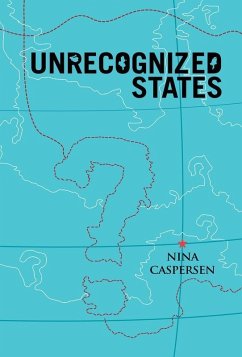
Europe and the Recognition of New States in Yugoslavia (eBook, PDF)
Versandkostenfrei!
Sofort per Download lieferbar
36,95 €
inkl. MwSt.
Weitere Ausgaben:

PAYBACK Punkte
18 °P sammeln!
Europe's recognition of new states in Yugoslavia remains one of the most controversial episodes in the Yugoslav crisis. Richard Caplan offers a detailed narrative of events, exploring the highly assertive role that Germany played in the episode, the reputedly catastrophic consequences of recognition (for Bosnia-Herzegovina in particular) and the radical departure from customary state practice represented by the EC's use of political criteria as the basis of recognition. The book examines the strategic logic and consequences of the EC's actions but also explores the wider implications, offering...
Europe's recognition of new states in Yugoslavia remains one of the most controversial episodes in the Yugoslav crisis. Richard Caplan offers a detailed narrative of events, exploring the highly assertive role that Germany played in the episode, the reputedly catastrophic consequences of recognition (for Bosnia-Herzegovina in particular) and the radical departure from customary state practice represented by the EC's use of political criteria as the basis of recognition. The book examines the strategic logic and consequences of the EC's actions but also explores the wider implications, offering insights into European security policy at the end of the Cold War, the relationship of international law to international relations and the management of ethnic conflict. The significance of this book extends well beyond Yugoslavia as policymakers continue to wrestle with the challenges posed by violent conflict associated with state fragmentation.
Dieser Download kann aus rechtlichen Gründen nur mit Rechnungsadresse in A, B, BG, CY, CZ, D, DK, EW, E, FIN, F, GR, HR, H, IRL, I, LT, L, LR, M, NL, PL, P, R, S, SLO, SK ausgeliefert werden.













